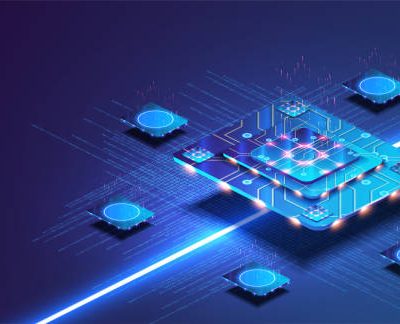Introduction
Quantum computing is a cutting-edge technology that promises to revolutionize the way we process and analyze large amounts of data. It’s a new form of computing that harnesses the properties of quantum mechanics to perform calculations at a much faster speed than traditional computers. In this article, we’ll take a closer look at what quantum computing is, how it works, and why it’s seen as a game-changer in the world of technology.
What is Quantum Computing?
Quantum computing is a branch of computer science that focuses on the development of computer technology based on the principles of quantum theory. Unlike traditional computers, which use binary digits (bits) to represent information, quantum computers use quantum bits, also known as qubits. This new type of computing enables quantum computers to perform certain calculations much faster than classical computers, which makes them particularly well-suited for solving complex problems in fields such as cryptography, chemistry, finance, and optimization.
How Does Quantum Computing Work?
Quantum computers use quantum mechanics to perform calculations. Quantum mechanics is a branch of physics that deals with the behavior of matter and energy at a very small scale, such as the scale of individual atoms and subatomic particles. In a quantum computer, information is represented by quantum bits, or qubits, which can exist in multiple states simultaneously. This allows quantum computers to perform many calculations in parallel, making them much faster than traditional computers for certain types of problems.
What are Qubits?
A qubit is a quantum bit, which is the basic unit of information in a quantum computer. Unlike bits in a traditional computer, which can only be in one of two states (0 or 1), qubits can exist in multiple states at the same time. This property is known as superposition, and it allows quantum computers to perform many calculations in parallel, making them much faster than classical computers for certain types of problems.
How are Qubits Different from Bits?
Bits in a traditional computer can only be in one of two states (0 or 1), while qubits can exist in multiple states simultaneously. This property, known as superposition, enables quantum computers to perform many calculations in parallel, making them much faster than classical computers for certain types of problems. In addition, qubits are also capable of entanglement, which is when the state of one qubit is directly connected to the state of another qubit. This allows quantum computers to perform certain types of calculations much faster than classical computers.
Quantum Computing Algorithms
Quantum algorithms are algorithms that are specifically designed to run on a quantum computer. They take advantage of the unique properties of qubits, such as superposition and entanglement, to perform certain types of calculations much faster than classical algorithms. Examples of quantum algorithms include Shor’s algorithm for factoring large numbers, Grover’s algorithm for searching unsorted databases, and the quantum simulation algorithm for modeling quantum systems.
Real-World Applications of Quantum Computing
Quantum computing has the potential to revolutionize many industries, including healthcare, finance, cryptography, and chemical simulations. For example, in healthcare, quantum computers could be used to help discover new drugs, while in finance, they could be used to analyze large amounts of financial data to make more informed investment decisions. In cryptography, quantum computers could be used to crack encrypted codes, while in chemical simulations, they could be used to model complex molecular interactions.
Conclusion
Quantum computing is a cutting-edge technology that has the potential to revolutionize the way we process and analyze large amounts of data. It uses quantum mechanics and the unique properties of qubits to perform calculations much faster than traditional computers. This new type of computing has the potential to greatly impact various industries, such as healthcare, finance, cryptography, and chemical simulations. Although quantum computing is still in its early stages, it is clear that it holds great promise for the future. Further research and development in this field is needed to fully unlock the potential of quantum computing and bring its benefits to a wider range of applications.




